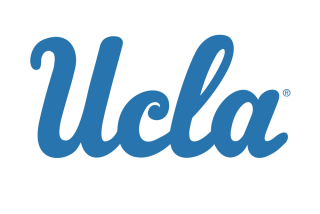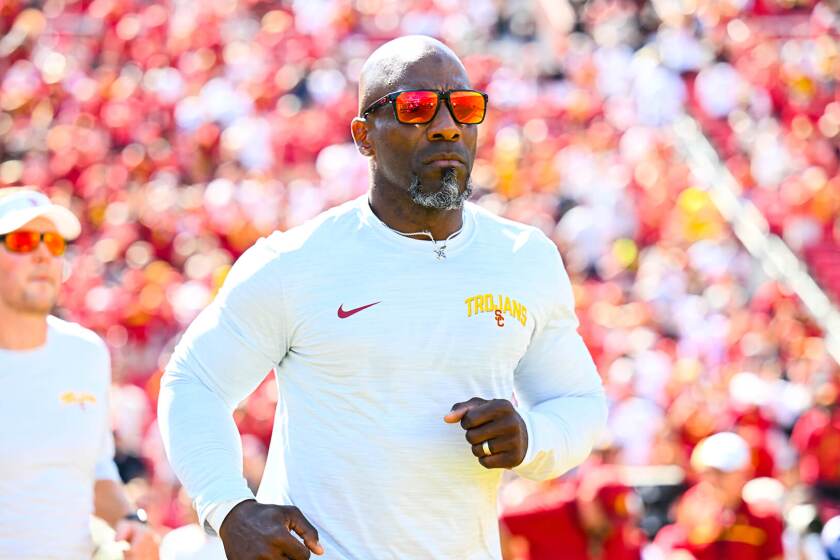Haslip Cleared for USC : Football: Arbitrator rules against Educational Testing Service in squabble over SAT scores. Trojan recruit may join team.
- Share via
An arbitrator has ruled that the Educational Testing Service lacked substantial evidence when it invalidated the college entrance test score of USC football recruit Ken Haslip Jr. Haslip, a defensive back and wide receiver who sat out his freshman year without playing, reacted with delight after learning of the decision that ended a year-long ordeal.
News of the ruling came as the Trojans prepared for their first day of football practice. Haslip plans to be there.
“This is the happiest I’ve been a long time,” he said Tuesday. “I’m glad it’s finally over.”
His lawyer, W. Anthony Willoughby, said he will file a federal lawsuit against ETS, charging it with defamation and breach of contract for its treatment of Haslip.
Haslip’s troubles started last Sept. 6 soon after he enrolled at USC on a football scholarship.
An unidentified “test user,” presumably an NCAA school, accused him of cheating on his Scholastic Assessment Test, prompting an investigation that resulted in a decision by ETS invalidating the results.
Under NCAA rules, recruits must score at least 700 of a maximum of 1,600 points on the SAT entrance exam to be eligible for freshman athletics.
Haslip had scored 480, 490 and 510 on three previous attempts before registering a qualifying 780 in March of last year.
During that test, ETS contended in its brief to the arbitrator, Haslip had been observed by a test proctor trying to view the answer sheet of a student sitting nearby. As a result, it said, he was moved to the front of the room after he and the other students had completed two sections of the exam.
In its analysis of his exam, ETS said that 100% of Haslip’s incorrect answers on the first section of the test and 80% of his wrong answers on part two matched those of the student whose answer sheet he was suspected of copying. By contrast, said ETS, once Haslip’s seat was changed, his wrong answers no longer corresponded with the other student’s, dropping to zero on one section, 6.3% on another and 12.5% on a third part.
However, Haslip’s lawyer argued, the case against his client was seriously flawed. He said ETS failed to point out that while they were seated six rows apart, Haslip had an 87.5% match in wrong answers with the other test-taker.
“Presumably my client is the Bionic Man and can see six rows back through the back of his head,” Willoughby told the arbitrator in a brief submitted last month.
The attorney also argued that ETS failed to follow its own guidelines “to obtain contrary, as well as supporting, evidence to settle the matter of irregularity” in a questioned test score. “ETS is aware, and has been for quite some time,” he contended, “that there are other possible causes of unusually large numbers of wrong answers in common between two examinees . . . such as common linguistic background or common test preparation or coaching. The latter appears the most likely alternative cause of unusually large numbers of errors in common, since some test preparation courses teach students common strategies for guessing answers . . . “
Indeed, Willoughby argued that Haslip’s passing score resulted from intensive tutoring in the weeks preceding the test.
While conceding that intensive preparation can boost a student’s scores, ETS contended it was mostly unlikely that coaching could have accounted for the 270-point increase Haslip registered since his previous test seven weeks earlier. But the arbitrator disagreed and concluded ETS did not meet its own standards requiring “substantial evidence” to justify canceling an applicant’s scores.
More to Read
Go beyond the scoreboard
Get the latest on L.A.'s teams in the daily Sports Report newsletter.
You may occasionally receive promotional content from the Los Angeles Times.





